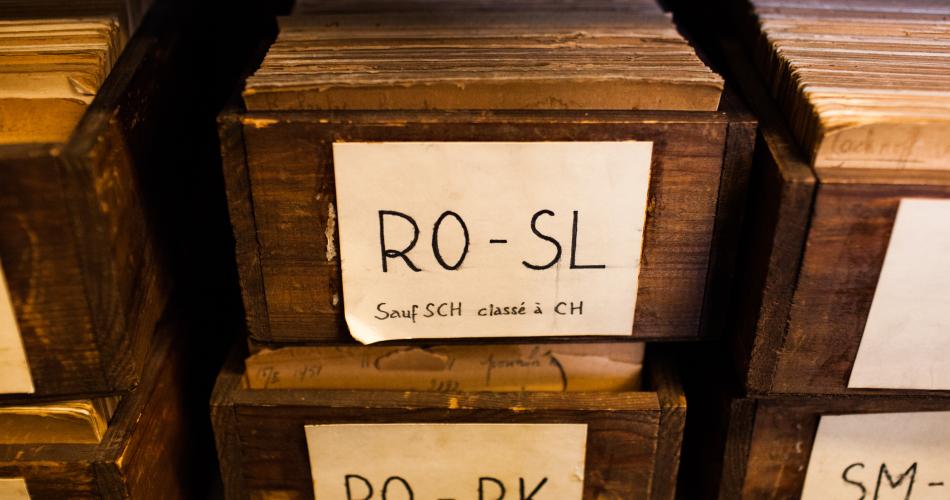Coming to the archives
How can I request a nominative search ?
For nominative research, the finding aids are nominative databases and a card index that are only accessible to Ofpra agents due to their confidentiality. Therefore it is the Mission histoire that does the research, according to the indications provided by the researchers.
For genealogical research, the information you provide by filling in the form for requesting access to public archives (the form can be downloaded at the bottom of the page) must be as precise as possible (complete identity : surname(s), first name(s), date of birth, nationality of the person(s) sought).
Once completed, you must send us this form by e-mail at mission-histoire[a]ofpra.gouv.fr or by mail.
The search times are from 15 days until 2 months..
Research on a specific nationality with a sample can also be done, by contacting the Mission Histoire after filling out the form for requesting access to public archives (the form can be downloaded at the bottom of the page).
For a scientific research, it is advised to contact the Mission Histoire to refine the terms of the research.
Can a nominative file be seen straightforward ?
Nominative files can be seen by the public 50 years after the date of the most recent document included in the file, according to article 213-2 of the french law Code du Patrimoine. This is because such files contain documents whose free communication could jeopardise the safety of individuals or their right to privacy.
This means that if the file ends with a document from 1962, the entire file can be freely seen. But if the file ends with a document from 1986, the entire file is not available and will have to be the subject of an exemption request.
Please note that, depending on the type of documents in the file, other time limits may apply. For example, the time limit is 75 years for documents relating to cases brought before the courts.
Research in the administrative records
Research is carried out by the researcher by consulting the finding aids available on-site or in electronic format, on request sent to the Mission Histoire.
What to do when a nominative file cannot be seen straightforward ?
You can request a exemption from the legal time limits, using the special form that can be found at the bottom of the page. It must be filled in precisely, signed and returned to the Mission Histoire by e-mail, or by mail.
Once the exemption form has been received by the Mission Histoire, Ofpra indicates its proposed decision and sends the request to the Service interministériel des Archives de France (SIAF). It is the SIAF that takes the decision to grant or reject the exemption request. Reasons must be given for any refusal (art. L. 213-5 of the Code du Patrimoine). The SIAF sends the response directly to the applicant, and a copy of the decision is sent to Ofpra.
If the exemption is granted, the applicant must contact the Mission Histoire to make an appointment coming to the archives.
Any exemption granted is granted for life. Any exemption granted is strictly personal and cannot be extended to another person.
If the exemption is not granted, the applicant may refer the matter to the Commission d'accès aux documents administratifs (CADA) within two months of the response to the exemption request.
For paper files, on-site consultation is the general rule.
For nominative files, it is mandatory to make a search request with the identity of the persons sought. Once the search has been carried out, if the result is positive, the Mission Histoire will propose an appointment.
For administrative records, you must indicate on the form the file numbers requested at least two weeks in advance, and make an appointment to consult them at the Mission Histoire.
No archives can be seen without making an appointment.
Opening hours for the archives : Tuesday, Wednesday and Thursday, excluding public holidays, between 9.30am and 12.30pm and 2pm and 5pm.
On site, only documents that can be freely seen can be photographed (using your own equipment), scanned (using your own equipment), or photocopied (in black and white, using the photocopier available on-site).
The general rules of the reading room are available here.
